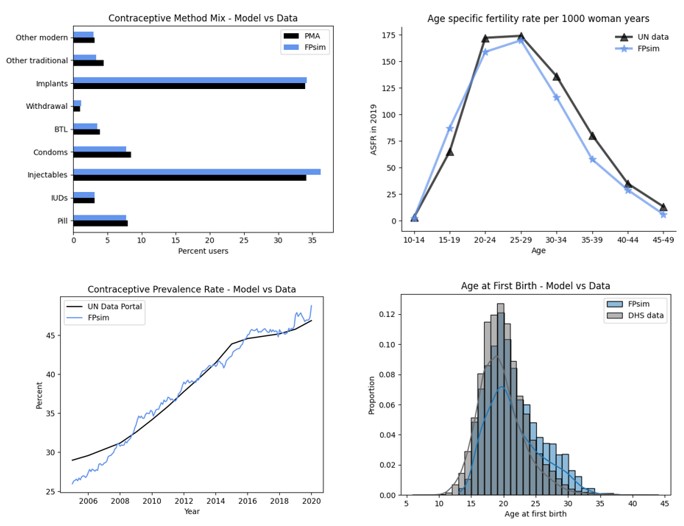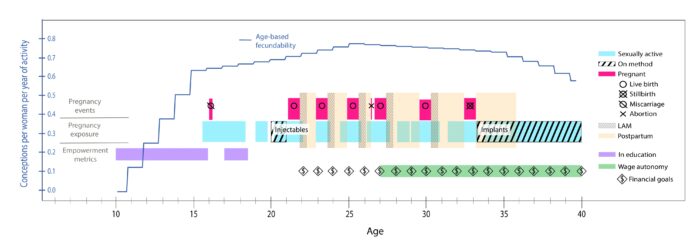FPsim is a stochastic agent-based model developed in Python for exploring and analyzing complex dynamics in family planning. This open-source tool allows researchers to investigate how individual-level changes across a woman’s life can lead to broader macro-level outcomes. The repository also includes scripts for analyzing model outputs and conducting functionality tests.

To find out more about FPsim or join the FPsim Slack community, email [email protected] or visit starsim-idm.slack.com
Using FPsim
Use the following categories to learn more information about FPsim and get started modeling:
Decision-makers
Read the publication to learn about FPsim’s features and capabilities to decide if it’s the right tool for informing your family planning programs.
Researchers
Generate novel insights using pre-configured scenario templates to learn the model for use in your research program.
Developers
Use technical skillsets to modify FPsim code, including calibrating to new contexts and building bespoke interventions.
Ready to jump in and start modeling with FPsim?
The installation instructions and user guide are found here!

Features
Features of FPsim include:
- Focus on family planning research: FPsim is specifically designed to aid in the study and analysis of family planning, helping researchers explore the factors that influence reproductive health and contraception use.
- Life-course approach: FPsim models family planning dynamics over a woman’s lifetime, taking into account changes at different stages, which helps in understanding the long-term impacts of reproductive decisions and family planning services.
- Compounding and temporal effects: FPsim simulates how various factors, such as contraception use or fertility choices, accumulate and interact over time, providing insights into the gradual build-up of effects on women’s reproductive health.
- Individual-level to macro-level outcomes: FPsim tracks individual-level changes in reproductive behaviors and aggregates them to provide a broader understanding of how these changes affect population-level trends, allowing for the exploration of demographic shifts and policy impacts.
Our approach
Our approach with FPsim is grounded in a life-course perspective, enabling researchers to study the compounding and temporal effects that shape family planning dynamics over time. While FPsim is a powerful tool for answering complex questions within social and behavioral systems, it is not a one-size-fits-all solution. We emphasize the importance of using accurate data and well-founded assumptions, ensuring that the model’s outputs are meaningful and relevant to the specific research questions at hand.

